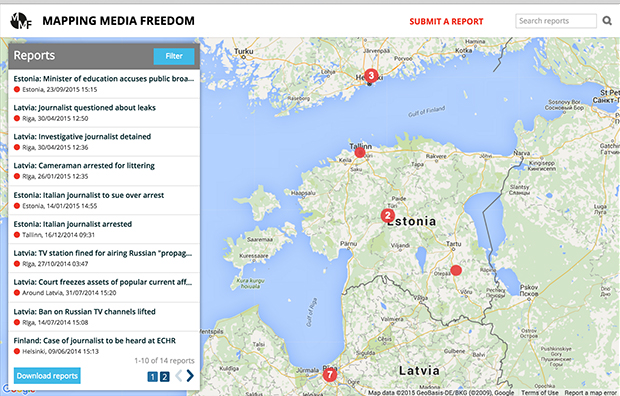9 Feb 2021 | News and features, Statements
[vc_row][vc_column][vc_column_text]
To:
The Right Honourable William Wragg MP, Chair, Public Administration and Constitutional Affairs Committee
The Right Honourable Julian Knight MP, Chair, Digital, Culture, Media and Sport Committee
CC
The Right Honourable Michael Gove, Chancellor of the Duchy of Lancaster and Minister for the Cabinet Office
The Right Honourable Chloe Smith, Minister for the Cabinet Office
Dunja Mijatovic, Council of Europe Human Rights Commissioner
Irene Khan, UN Special Rapporteur on the promotion and protection of freedom of opinion and expression
Elizabeth Denham, UK Information Commissioner
Lord Ahmad of Wimbledon; UK Foreign Office
Kanbar Hossein Bor; UK Foreign Office
We are writing to you to raise serious concerns about the difficulties that journalists, researchers and members of the public currently experience when trying to use FOI legislation, across government.
As you know, the Freedom of Information Act 2000 sets standards for openness and transparency from government, and is a critical tool for ensuring that journalists and members of the public can scrutinise the workings of government.
We have, however, become increasingly concerned about the way in which the legislation is being interpreted and implemented. As the new openDemocracy report ‘Art of Darkness’ makes clear, FOI response rates are at the lowest level since the introduction of the Act 20 years ago.
The report also points to increasing evidence of poor practices across government, such as the use of ‘administrative silence’ to stonewall requests.
In addition, it was recently reported that the Cabinet Office is operating a ‘Clearing House’ unit in which FOI responses are centrally coordinated, undermining the applicant-blind principle of the Act. This raises serious questions about whether information requests by journalists and researchers are being treated and managed differently.
The new report also shows that the regulator charged with implementing Freedom of Information legislation – the Information Commissioner’s Office (ICO) – has seen its budget cut by 41 per cent over the last decade while its FOI complaint caseload has increased by 46 per cent in the same period.
We believe that there are now strong grounds for a review of the UK government’s treatment of and policies for dealing with Freedom of Information requests, and would urge the minister to address these concerns. We urge you to take the following steps as a matter of priority:
-
Open an inquiry into the operation of the Clearing House, which comprehensively investigates whether its operation is GDPR-compliant, whether journalists and other users of the Act are being monitored and/or blacklisted, and whether this is illegal and/or undermines the applicant-blind principle of the Act.
-
Consider the merits of introducing an ‘administrative silence’ rule whereby a failure to respond to a request within the requisite time period is deemed to be a refusal and can be appealed in full to the ICO.
-
Recognise the national interest of an independent and fully funded regulator of information rights by considering the ICO’s critical lack of funding, and making the regulator accountable to and funded by parliament.
Despite recommendations from the ICO, the government has also declined to expand the FOI Act to cover public contracts to private firms – and has failed to deliver on its own pledges to increase the proactive publication of contracting data.
Given the recent National Audit Office report’s criticism about the lack of transparency in government Covid contracting, it is high time that this recommendation was followed through – and that further measures as outlined above are taken to protect and strengthen the public’s right to access information.
Yours,
Mary Fitzgerald, Editor in Chief, openDemocracy
Katharine Viner, Editor in Chief, The Guardian
John Witherow, Editor, The Times
Emma Tucker, Editor, The Sunday Times
Chris Evans, Editor, The Daily Telegraph
Roula Khalaf, Editor, The Financial Times
Alison Phillips, Editor, Daily Mirror
Paul Dacre, Editor-in-Chief, Associated Newspapers, former Editor, Daily Mail
Alan Rusbridger, former Editor in Chief, The Guardian
Lionel Barber, former Editor, Financial Times
Veronica Wadley, Chair of Arts Council London; former Editor, Evening Standard
David Davis MP
Alex Graham, Chair of the Scott Trust
Ian Murray, Executive Director, Society of Editors
Sir Alan Moses, former Chair, IPSO
Anne Lapping CBE, former Deputy Chair, IPSO
Philip Pullman, author
Baroness Janet Whitaker
Baroness Tessa Blackstone
Ruth Smeeth, Chief Executive, Index on Censorship
Daniel Bruce, Chief Executive, Transparency International
Daniel Gorman, Director, English PEN
Menna Elfyn, President of Wales PEN Cymru
Carl MacDougall, President of Scottish PEN
Rebecca Vincent, Director of International Campaigns, Reporters Without Borders
Michelle Stanistreet, General Secretary, National Union of Journalists
Sian Jones, President, National Union of Journalists
Jodie Ginsberg, Chief Executive Officer, Internews Europe
John Sauven, Executive Director, Greenpeace
Rachel Oldroyd, Managing Editor, The Bureau of Investigative Journalism
Jonathan Heawood, Public Interest News Foundation
Anthony Barnett, Founding Director, Charter 88
Chris Blackhurst, former Editor, The Independent
Suzanna Taverne, Chair, openDemocracy
Philippe Sands QC
George Peretz QC
David Leigh, investigative journalist
Robert Peston, journalist and author
Peter Oborne, journalist and author
Nick Cohen, journalist and author
David Aaronovitch, journalist and author
Michael Crick, journalist and author
Ian Cobain, investigative journalist
Tom Bower, investigative journalist
Aditya Chakrabortty, Senior Economics Commentator, The Guardian
Jason Beattie, Assistant Editor, the Daily Mirror
Rowland Manthorpe, Technology Correspondent, Sky News
Cynthia O’Murchu, Investigative Reporter, Financial Times
Tom Warren, Investigative Reporter, BuzzFeed News
Christopher Hird, Founder and Managing Director, Dartmouth Films
Meirion Jones, Investigations Editor, The Bureau of Investigative Journalism
James Ball, Global Editor, The Bureau of Investigative Journalism
Oliver Bullough, journalist and author
Henry Porter, journalist and author
Peter Geoghegan, Investigations Editor, openDemocracy
Margot Gibbs, Senior Reporter, Finance Uncovered
Lionel Faull, Chief Reporter, Finance Uncovered
Chris Cook, Contributing editor, Tortoise
Brian Cathcart, Professor of Journalism, Kingston University
Mark Cridge, Chief Executive, mySociety
Dr Susan Hawley, Executive Director, Spotlight on Corruption
Helen Darbishire, Executive Director, Access Info Europe
Miriam Turner and Hugh Knowles, co-CEOs, Friends of the Earth
Mike Davis, Executive Director, Global Witness
Silkie Carlo, Director, Big Brother Watch
Natalie Fenton, Professor of Media and Communications, Goldsmiths, University of London
Dr Lutz Kinkel, the Managing Director of the European Centre for Press and Media Freedom (ECPMF)
Scott Griffen, Deputy Director of International Press Institute
Granville Williams, Editor, Media North
Alison Moore, journalist and editor
Tim Gopsil, Former Editor, Free Press and the Journalist magazine
Dave West, Deputy Editor, Health Services Journal
Dr Sam Raphael, Director, UK Unredacted and University of Westminster
Leigh Baldwin and Marcus Leroux, SourceMaterial
Vicky Cann, Corporate Europe Observatory
Barnaby Pace, Senior Campaigner, Global Witness
Lisa Clark, Scottish PEN Project Manager
Nick Craven, journalist
Caroline Molloy, Editor, openDemocracy UK
Jenna Corderoy, Investigative Reporter, openDemocracy
Jamie Beagent, Partner, Leigh Day
Sean Humber, Partner, Leigh Day
Harminder Bains, Partner, Leigh Day
Thomas Jervis, Partner, Leigh Day
Oliver Holland, Partner, Leigh Day
Merry Varney, Partner, Leigh Day
Daniel Easton, Partner, Leigh Day
Michael Newman, Partner, Leigh Day
Sarah Campbell, Partner, Leigh Day
[/vc_column_text][/vc_column][/vc_row]
1 May 2020 | Covid 19 and freedom of expression, News and features
[vc_row][vc_column][vc_column_text]Governments are using the Covid-19 crisis to change freedom of information laws and, unless we are very careful, important stories could get unreported. Since the beginning of the crisis, governments from Brazil to Scotland have made changes to their FOI laws; some of the changes are rooted in pragmatism at this unprecedented time; others may be inspired by more sinister motives.
FOI laws are a vital part of the toolkit of the free media and form a strong pillar that supports the functioning of open societies.
According to a 2019 report by Unesco – published some two and a half centuries after the first such law was introduced in Sweden – 126 countries around the world now have freedom of information laws. These typically allow journalists and the general public the right to request information relating to decisions made by public bodies and insight into administration of those public bodies.
US president Thomas Jefferson once wrote: “Whenever the people are well informed, they can be trusted with their own government; that whenever things get so far wrong as to attract their notice, they may be relied on to set them to rights.”
Now in this time of crisis, freedom of information processes are being shut down, denied unless they relate specifically to the crisis or the deadlines for responses are being extended.
When the Covid-19 crisis first erupted, we made a decision to monitor attacks on media freedom. It wasn’t just a random idea; we know that in similar times of crisis, repressive governments often attack the work that journalists do – sometimes the journalists themselves – or introduce new legislation they have wanted to do for some time and now see a time of crisis as an opportunity to do so without proper scrutiny.
Since the start of the crisis, we have been collecting reports on attacks on media freedom through an innovative, interactive map. More than 125 incidents have been reported by our readers, our network of international correspondents, our staff in the UK and our partners at the Justice for Journalists Foundation. Many relate to changes to FOI legislation.

Let us be clear there can be legitimate reasons for amending legislation in times of international crisis. With many public officials forced to work from home, many do not have access to the information they need or the colleagues they need to consult to be able to answer journalists’ requests. Others need more time to be able to put together an informed response.
Yet both restrictions and delays are worrying. They allow politicians and public bodies to sweep information that should be freely available and subject to wider scrutiny under the carpet of coronavirus. News that is three months old is, very often, no longer news.
In its Coronavirus (Scotland) Bill, the Scottish government has agreed temporary changes to the Freedom of Information (Scotland) Act 2002 that extend the deadlines for getting response to information requests from 20 to 60 working days. The initial draft wording sought to allow some agencies to extend this deadline by a further 40 days “where an authority was not able to respond to a request due to the volume and complexity of the information request or the overall number of requests being dealt with by the authority”. However, this was removed during the reading of the bill following concerns raised by the Scottish information commissioner.
The bill was passed unanimously on 1 April and became law on 6 April. As it stands the new regulations remain in force until 30 September 2020 but can be extended twice by a further six months.
In Brazil, President Jair Bolsonaro has issued a provisional measure which means that the government no longer has to answer freedom of information requests within the usual deadline. Marcelo Träsel of the Brazilian Association of Investigative Journalism says the measure is “dangerous” as it gives scope for discretion in responding to requests.
The decree compelled 70 organisations to sign a statement requesting the government not to make the requested changes, saying “we will only win the pandemic with transparency”.
Romania and El Salvador are among the other countries which have stopped FOI requests or extended deadlines. By contrast, countries such as New Zealand have reocgnised the importance of FOI even in a crisis. The NZ minister of justice Andrew Little tweeted: “The Official Information Act remains important for holding power to account during this extraordinary time.”
FOI law changes are not the only trends we have noticed.
Index’s deputy editor Jemimah Steinfeld has noted how world leaders are ducking questions on coronavirus while editorial assistant Orna Herr has written about how the crisis is providing pretext for Indian prime minister Narendra Modi to increase attacks on the press and Muslims.
If you are a journalist facing unreasonable delays in receiving information from public bodies at this time, do report it to us at bit.ly/reportcorona.[/vc_column_text][/vc_column][/vc_row]
7 Jul 2015 | Europe and Central Asia, Hungary, mobile, News and features

Hungary’s Prime Minister Viktor Orbán, of ruling party Fidesz (Pic © European People’s Party/CreativeCommons/Flickr)
The Hungarian parliament has voted yes to plans to allow the government and other public authorities to charge a fee for the “human labour costs” of freedom of information (FOI) requests this week, as well as granting sweeping new powers to withhold information. It just needs the signature of President Janos Ader before it becomes law.
The bill, submitted by Minister of Justice László Trócsányi, was published on the government website just days before the vote, on 3 July, precluding any meaningful debate about the proposal. It is widely believed that through this initiative, governing party Fidesz is trying to put a lid on a number of scandals involving wasteful government spending, uncovered through FOI requests.
According to Transparency International, the bill “appears to be a misguided response by the Hungarian government to civil society’s earlier successful use of freedom of information tools to publicly expose government malpractice and questionable public spending”.
One provision of the bill allows public bodies to refuse to make certain data public for 10 years if deemed to have been used in decision-making processes, according to Index award-winning Hungarian investigative news platform Atlatszo.hu. As virtually any piece of information can be used to build public policies upon, this gives the government a powerful argument not to answer FOI requests.
The bill also allows government actors to charge fees for fulfilling FOI request. Until now, government actors could ask for the copying expenses of documents. From now on, they can ask the person filing the request to cover the “human labor costs” of the inquiry.
It is not yet clear how much members of the public will have to pay. “There will be a separate government decree in the future regarding the costs that can be charged for a FOI request,” Tibor Sepsi, a lawyer working for Atlatszo.hu, says.
Because the public has no means to verify whether these costs are well-grounded, and at some government agencies the salaries are known to be very high, the government might be in a discretionary position to ask prohibitive costs for answering the FOI requests, critics of the amendment say.
“The FOI requests usually ask for data that are already available somewhere in electronic format, therefore no government body can say that fulfilling a request involves gathering information,” says Tamás Bodoky, the editor-in-chief of Atlatszo.hu.
“It is unacceptable to plead for extraordinary workload and expenses when much of the requests refer to things that should be published in accordance with transparent pocket rules. This information should be readily available in the settlement of accounts and reports,” he adds.
The work of investigative journalists and watchdog NGOs is further complicated through another provision, regarding copyright. In some cases, the government will be able to refer to copyright issues and only give limited access to certain documents, without making them publicly available.
While the bill will make life harder for those making FOI requests, Sepsi also points out that the situation is not as bad as it may initially seem: “The government will have half a dozen of new ways to reject vexatious FOI requests, but on the implementation level, ordinary courts, the constitutional court or the Hungarian National Authority for Data Protection and Freedom of Information Authority will have the power to keep things under reasonable control.”
Nevertheless, Hungarian and international NGOs working for the transparency of public spending and government decisions are protesting against the bill. An open letter, signed by the groups Atlatszo.hu, K-Monitor, Energiaklub Szakpolitikai Intézet and Transparency International Magyarország Alapítvány has been sent to the Minister of Justice Trócsányi, to the Hungarian National Authority for Data Protection and Freedom of Information Authority, as well as the MPs whose votes decided the fate of the proposal.
“We believe the government would do the right thing if – instead of rolling back on transparency – it would increase the so-called proactive disclosure, meaning that it would publish the information regarding its functioning in electronic format, without a request. We can provide international examples where this can be achieved simply, without extraordinary costs. This would increase not only the transparency of public spending, but the number of FOI requests would also decrease significantly,” the letter argues.
After the vote, a group of 50 opposition MPs pledged to ask the constitutional court to review the text.
Mapping Media Freedom
Click on the bubbles to view reports or double-click to zoom in on specific regions. The full site can be accessed at https://mappingmediafreedom.org/
|
This article was posted on 6 July 2015 at indexoncensorship.org



